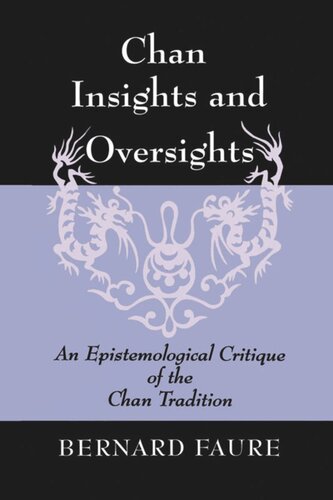

Most ebook files are in PDF format, so you can easily read them using various software such as Foxit Reader or directly on the Google Chrome browser.
Some ebook files are released by publishers in other formats such as .awz, .mobi, .epub, .fb2, etc. You may need to install specific software to read these formats on mobile/PC, such as Calibre.
Please read the tutorial at this link: https://ebookbell.com/faq
We offer FREE conversion to the popular formats you request; however, this may take some time. Therefore, right after payment, please email us, and we will try to provide the service as quickly as possible.
For some exceptional file formats or broken links (if any), please refrain from opening any disputes. Instead, email us first, and we will try to assist within a maximum of 6 hours.
EbookBell Team

4.4
42 reviewsFor many people attracted to Eastern religions (particularly Zen Buddhism), Asia seems the source of all wisdom. As Bernard Faure examines the study of Chan/Zen from the standpoint of postmodern human sciences and literary criticism, he challenges this inversion of traditional "Orientalist" discourse: whether the Other is caricatured or idealized, ethnocentric premises marginalize important parts of Chan thought. Questioning the assumptions of "Easterners" as well, including those of the charismatic D. T. Suzuki, Faure demonstrates how both West and East have come to overlook significant components of a complex and elusive tradition. Throughout the book Faure reveals surprising hidden agendas in the modern enterprise of Chan studies and in Chan itself. After describing how Jesuit missionaries brought Chan to the West, he shows how the prejudices they engendered were influenced by the sectarian constraints of Sino-Japanese discourse. He then assesses structural, hermeneutical, and performative ways of looking at Chan, analyzes the relationship of Chan and local religion, and discusses Chan concepts of temporality, language, writing, and the self. Read alone or with its companion volume, The Rhetoric of Immediacy, this work offers a critical introduction not only to Chinese and Japanese Buddhism but also to "theory" in the human sciences.